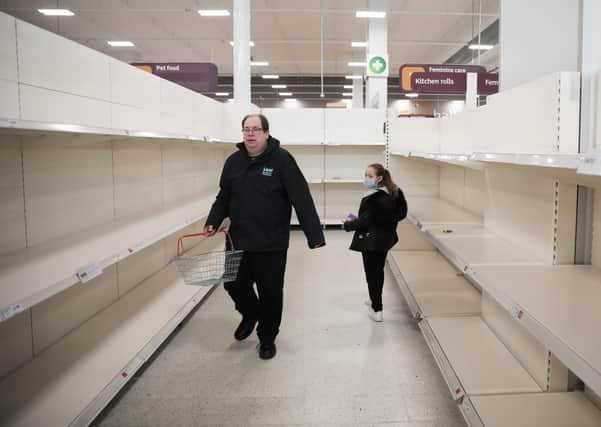Don’t blame logistics sector for PPE problems – Prof Alan McKinnon


Logistically, Britain should have been well prepared for this crisis. The World Bank rates it sixth in the world in terms of its logistics capability. Over the past 40 years the country has been a fertile source of logistics and supply chain innovation. Many of its companies can legitimately claim to have world class distribution systems.
Indeed, many of the UK’s logistical strengths have been much in evidence in recent weeks. For example, the ability of supermarket supply chains to cope with the surge in panic buying and the rapid expansion of online retail logistics to serve a “locked down” population can be singled out for praise.
Advertisement
Hide AdAdvertisement
Hide AdIt is in the health sector that the supply chain response has been woefully inadequate – the very place where logistical failures are a matter of life and death.
As widely reported, chronic shortages of personal protective equipment (PPE) have exposed staff in hospitals, care homes and other essential services to serious risk of infection and, as a result, many people have died.
The word “logistics” has featured prominently in the UK government’s excuses for this national disaster.
The UK Health Secretary claimed that in supplying enough PPE to hospitals and care homes the government was facing the “biggest logistical challenge of peacetime”. This was a clear case of hyperbole because some companies deal every day with logistical challenges at least as demanding.
The real problem lay not so much in moving the stuff but in the inadequacy of the strategic stocks of PPE. Government and health service planners allowed this inventory to run down or expire, despite 20 years of research on how to keep supply chains resilient and six “national risk register” studies, all of which rated a pandemic as the greatest threat facing the UK.
Many companies are also guilty of complacency in their contingency planning, but when their supply chains are disrupted it is usually just money rather than lives that are lost.
Deficient stocks of essential equipment have left the health and care systems too dependent on the sourcing of fresh supplies on a hand-to-mouth basis.
This was well exemplified by the much-hyped airfreight consignment of 400,000 medical gowns from Turkey, which would have met only two and half days of NHS demand but, in the end, had to be rejected as sub-standard.
Advertisement
Hide AdAdvertisement
Hide AdJust-in-time replenishment is now widely and successfully practised across the business world, but is much too precarious for the supply of life-saving equipment during a national emergency.
Given the critical importance of logistics to the management of the Covid19 crisis it is odd that there is no specialist in this field on the UK government’s Scientific Advisory Group on Emergencies (SAGE) or its Scottish equivalent.
Hopefully governments everywhere will be drawing more effectively on logistics expertise by the time a Covid19 vaccine is available and the truly monumental task of distributing it globally begins.
Professor Alan McKinnon FCILT, Professor of Logistics, Kuehne Logistics University, Hamburg and Professor Emeritus Heriot-Watt University, Edinburgh.
Comments
Want to join the conversation? Please or to comment on this article.